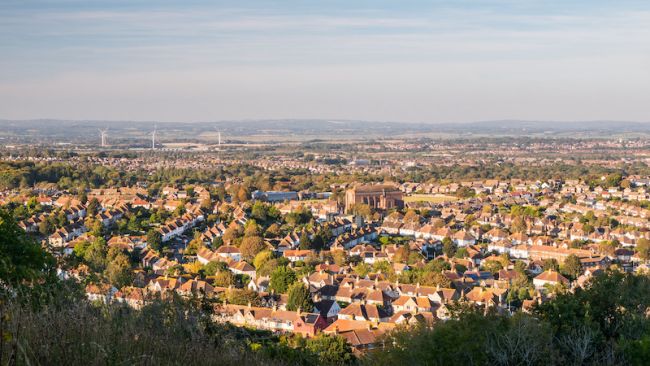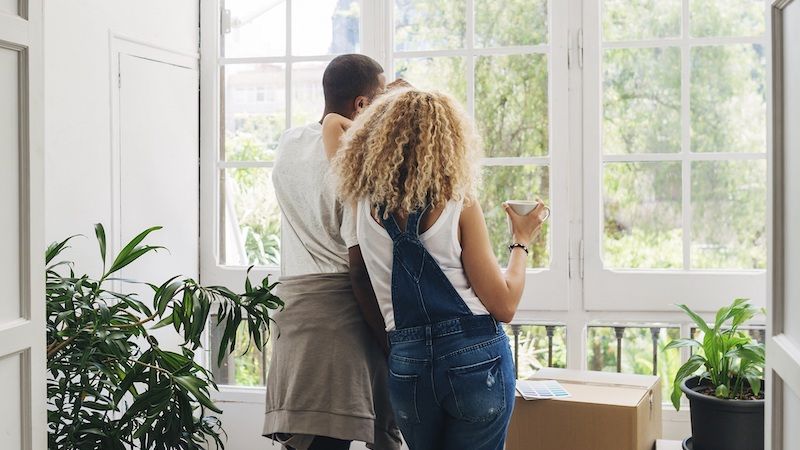
Take 5… The Suburban Home
From a substantial family home with a swimming pool in Gerrards Cross to an extensively modernised period property in a prestigious Chester location, we’ve selected five of the best suburban homes on the market.


The COVID-19 pandemic has had a significant impact on the way we interpret living in our homes.
Our expectations, and the functions of our living spaces, have shifted in focus. Many of us now seek attributes from the home that we hadn’t previously considered.
“Over the course of 2020 we had time to reflect upon our homes, how we live and our motivations", comments Vanessa Hale, head of insights & residential research at Strutt & Parker.
“Whether we now need a quiet corner to work from home, extra bedrooms to house extended family or even a larger garden for children to go wild, what’s clear is that the experience of lockdown shone a light on the way our home functions, and whether it meets our needs, like never before. And these new wants and needs are leading the way when it comes to some of the motivations behind the search for a new home”
To better understand our ever-changing wants and needs, Strutt & Parker’s Life Moves The Next Chapter (its 8th edition of the annual Housing Futures report), asked prospective homebuyers about their next primary home.
Our carefully considered questions explore whether homebuyers share similar priorities with eight out of ten (79%) homeowners who have identified one or more changes they would like to make to the design of their homes after lockdown.
If you are planning to buy or sell this year, let us help you in your efforts by analysing some of the many trends identified in the research.
Location-based motives scored highly across the board.
‘A move to a more desirable area’ was cited by 81% of respondents as the most important reason for moving home in 2020, while 76% said they would prioritise access to local amenities. It seems government guidelines to stop the spread of the virus reinforced our conceptions of ‘thinking local’.
Last year, many column inches were dedicated to stories of mass exoduses from urban to rural settings. But the reality is that the majority of people still prefer metropolitan living. The highest proportion of homebuyers (29%) said their next property will be in a big city. 17% of respondents planned to relocate to a town, while 12% wanted to move to a small city. In contrast, just 10% planned to move to a village.
However, despite the strong draw of city living, our longing for peace and quiet also seems to be stronger than ever. ‘Privacy’ came second in a list of reasons for moving and was mentioned by 79% of those surveyed.
Safety was the third most important factor, with 78% listing this factor highly – perhaps this should come as no surprise after such a restriction-heavy year.
Detached houses are the most sought-after property type for a primary new home, with 41% of movers planning to purchase a stand-alone dwelling. Only 21% hope to purchase a semi-detached home and 19% are searching the market for a flat. A clear pattern which enforces the idea homebuyers are seeking more privacy after the pandemic.
The need to transform our homes into versatile spaces has also gathered momentum.
According to the report, the most desirable extra rooms in a house are a guest bedroom (34% mentioned), utility room (also 34%), downstairs toilet or cloakroom (33%) and en-suite bathrooms (also 33%).
Perhaps this suggests we will start to socialise at home less? Rather than entertainment spaces to cater for guests, many homebuyers’ preferred choices for extra space that benefit occupants the most. One suspects guest bedrooms are prime candidates for makeshift offices, too.
The Royal Institute of British Architects (RIBA) found that 70% of homeowners believe the design of their home has affected their mental wellbeing during the pandemic.
Health-conscious buyers may see the design of their living space as a vital benefit to their wellbeing. When asked what they would look for in a new home to benefit their mental health, 55% of respondents mentioned large windows to let in sunlight and 40% said they would choose interiors designed to provide comfort, security and calm.
Being close to nature was the second most popular choice, with 45% of buyers hoping to find a new home with access to outdoor spaces. A further 38% of home buyers said they would seek small private gardens in their new homes, while 36% are hoping for a large, family-sized garden.
Meanwhile, balconies were one of the most important features for Londoners to have in their new primary home – 34% said they will seek this versus the national average of 19%. During these turbulent times, the therapeutic effect of the great outdoors has a vital role to play for city dwellers too.
Of those planning to buy a new home in the next five years, as many as 30% said they had not considered moving before the outbreak of COVID-19.
Although we cannot assume all of these home buyers decided to up sticks as a direct result of the pandemic, research suggests that our changing lifestyles are continually shaping the housing market.
A YouGov survey found that among those who switched to working from home during the pandemic, 91% said they want to continue working this way at least some of the time from now on. Tellingly, almost one third of people (29%) planning to move in the next five years expressed a need for office space in their new property, reflecting the sudden sharp increase in the number of people now working from home more often.
The need for space is also driven by our ever-growing households. Our need to create support bubbles with the most vulnerable members of our families is likely to lead to a trend of multigenerational living after the pandemic. RIBA found that 7% of homeowners would like to change the design of their home to accommodate their extended family. It stands to reason that homebuyers share similar priorities.
While it’s comforting to learn how our homes can help others, homeowners are also keen to maintain their own wellbeing. Research from October 2020 reveals that 12% desire more personal space in the home after lockdown. Some 29% of prospective buyers also mentioned that they would like more space to indulge in their hobbies.
Findings from Life Moves, Next Chapter show that the pandemic has been a pivotal moment in the housing market. It remains to be seen whether recent changes to our everyday life will shape our expectations of the home long after lockdowns are lifted.